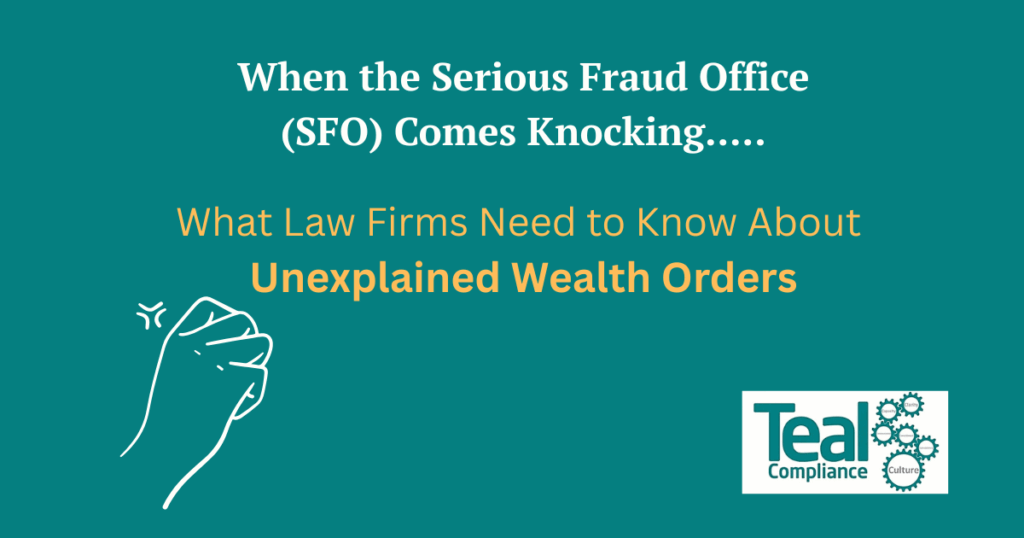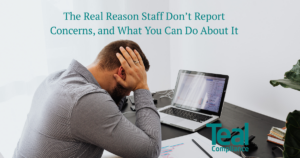By Mark Heffer, Fraud Prevention Specialist, and Saba Janjua, Associate
Fraud risk is not always about what you see coming. Increasingly, it’s about what you don’t. One of the most significant tools the Serious Fraud Office (SFO) now has at its disposal is the Unexplained Wealth Order (UWO), a court order requiring individuals (or entities) to account for the origins of their wealth.
The SFO’s recent success in recovering more than £1.1 million under its first UWO is a powerful signal of how seriously regulators are treating unexplained assets. You can read their announcement here.
(SFO: £1.1m recovery via first UWO)
For law firms, this raises a critical question: how prepared would your firm, its partners, or its clients be if the SFO decided to take an interest?
What the SFO’s use of UWOs tells us
The SFO’s recovery demonstrates several important lessons:
- Unexplained assets will be challenged. UWOs shift the burden of proof: it’s up to the subject to explain the legitimacy of their wealth.
- Real estate remains a prime target. Property is a common vehicle for holding or laundering high-value assets, and professional advisers like law firms are expected to spot red flags.
- This is not a one-time event. The SFO has signalled its intention to continue using UWOs and other asset recovery powers.
For legal practices, these lessons underscore that risk management in fraud prevention must be integrated with everyday operations. It’s not enough to assume “we don’t deal with dirty money.”
Four Questions Every Firm Should Ask
At Teal Compliance, we guide firms to proactively confront fraud risk. Here are four foundational questions we believe every law firm should ask:
- Do we know where high-risk or opaque funds flow through our network of entities? Mapping all legal entities, client accounts, and associated structures will surface weak points.
- Can we document the origins of significant assets? Without clean, verifiable financial trails, unexplained wealth becomes a liability.
- Is the compliance function empowered, independent, and resourced? In a firm under pressure, compliance should not be assumed away by commercial or client demands.
- Could we respond quickly and effectively if served with an order or notice? Having pre-established workflows and accessible, secure records is critical scrambling to collect documents after the fact is too late.
Dispelling Common Misconceptions
- “It’s only for large, headline cases.” Smaller firms dealing with high-net-worth clients can be drawn in by association.
- “We’ll deal with it when it happens.” A reactive stance often leads to reputational damage and weaker defences.
- “We never assist suspicious clients.” Even legitimate clients may attract scrutiny if their financial disclosures don’t align with their publicly known activities.
Strong fraud prevention isn’t about distrusting clients, it’s about protecting your firm, its people, and the trust your clients place in you.
Why This Matters for Law Firms
The legal profession sits in a uniquely vulnerable position: trusted intermediaries, access to client accounts, and involvement in high-value transactions make firms both privileged and exposed. Regulators expect more than compliance, they expect foresight.
The SFO’s use of UWOs underscores that firms must go beyond the basics: embed risk assessments, source-of-funds checks, compliance independence, and rapid-response planning into your DNA.
Final Thought
We train to prevent fraud but if it should happen, we have to deal with it in an open and transparent way. Don’t panic, law enforcement officers are not the enemy and we need to work with them. Mark was that officer liaising with law firms. We understand it can be stressful. Plan ahead for what may never happen but be happy with the knowledge that you at least have a plan.
Teal can also help you build a fraud response.




